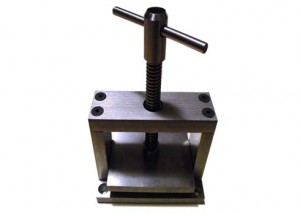 All you hear about these days, it seems, is “Indie Publishing” (a term which has been co-opted by self-publishers). And there’s a thoughtful article about this phenomenon in the Huffington Post recently: The Year Indies Finally Got on Top.
All you hear about these days, it seems, is “Indie Publishing” (a term which has been co-opted by self-publishers). And there’s a thoughtful article about this phenomenon in the Huffington Post recently: The Year Indies Finally Got on Top.
I certainly agree that there have been some successful self-published books recently, and that the ease of self-publishing opens doors to those who want to see their work in print. It’s really a wonderful thing for writers who either don’t have the patience or the desire to pursue traditional publishing or who find the doors to the traditional publishers closed to them.
But I still have some problems with the concept. First, the term “Indie Publishing” has been adopted by self-publishers as a way of de-stigmatizing what they do. Until the self-publishers got hold of it, the term was used to refer to independent university and small presses, i.e., traditional publishers outside of the very insular world of of the Big Six (now Five) trade publishers. Self-publishers claim they are merely following the lead of the music industry, and the point is now more or less moot as their usage of the term spreads, but there is a world of difference between the new Indie Publishing and the small presses.
To start with there is quality. Sure, I’ve read work from traditional publishers that isn’t great (or at least not to my taste, which is a different matter), and I’ve found errors from time to time that I wouldn’t let my college freshman composition students get away with. And there are some very good writers who have opted for legitimate reasons to self-publish (in order to make a larger share of the profits, for example, or simply to capitalize on their names). But in general there’s a real quality problem in self-publishing. Editors really do serve a purpose, and most self-published books are also self-edited, which allows errors to slip by.
But it’s not just about punctuation, spelling, and grammar. Marketing and best-seller lists aside, the reason some books succeed (earning critical acclaim or prizes) is that they’re well written. Readers still care about that, don’t they? (I certainly do, and so do most writers I know, but I suspect that I over-estimate the standards of the typical reader.) While there will probably be an increasing number of well-written, well-edited self-published books, I believe those are currently a very small minority. And how does the reader who cares know if the book she’s picking up is well written or not? You can read a sample, sometimes, but that may not be definitive. My rule of thumb? Unless I know the author or a particular book has been recommended to me by someone I know and whose taste and judgment I trust, I’m not going to read a self-published book. I may download it when the author makes it free for Kindle on Amazon, but it’s unlikely that I’ll ever actually read it. Life is too short, and I’ve got thousands of very good books I want to read.
Which brings me to small presses. I think the gatekeepers really do serve a purpose, although in recent years the gate has moved. Big publishers and the agents who serve them (there are agents who actually serve their clients, the authors, but those are increasingly hard to find) are looking for bestsellers. It’s a business, so I can’t really blame them for that. But these days there is a second “gate” that is available to more of us, those who write literary fiction that is unlikely to appeal to the big publishers. (Or maybe it isn’t our work that is the problem; women have long argued that the publishing world discriminates against them, and I would suggest that women aren’t the only victims of that discrimination–but that’s a whole other conversation.) This second gate is the small press, or what used to be called the Independent Press world.
Small press books have recently been recognized with major awards including the Pulitzer Prize and the National Book Award. Small press books are available in bookstores and through traditional distribution channels as well as directly from the publishers and, of course, through Amazon.com. Small press books may not have the broad appeal that the big publishers hope will lead to best-seller lists. Press 53, for example, which publishes both of my books, specializes in short story collections and poetry, both niche markets. But they’ve published some very fine work in both genres, and are making a name for themselves and their authors.
I am now trying to find an agent and/or publisher for a novel that I recently completed. I have confidence in the work, but I’m losing hope that big publishers will be interested. I thought they would be when I finished it, but at this point, I don’t think it will happen. And that’s really okay. There are hundreds of fine small presses out there. I’ve gone that route with my story collections. I can do it again with this novel. The trick is finding the right one. That’s my challenge in the coming year.
And I won’t say “never,” but I have no intention of self-publishing this book.
